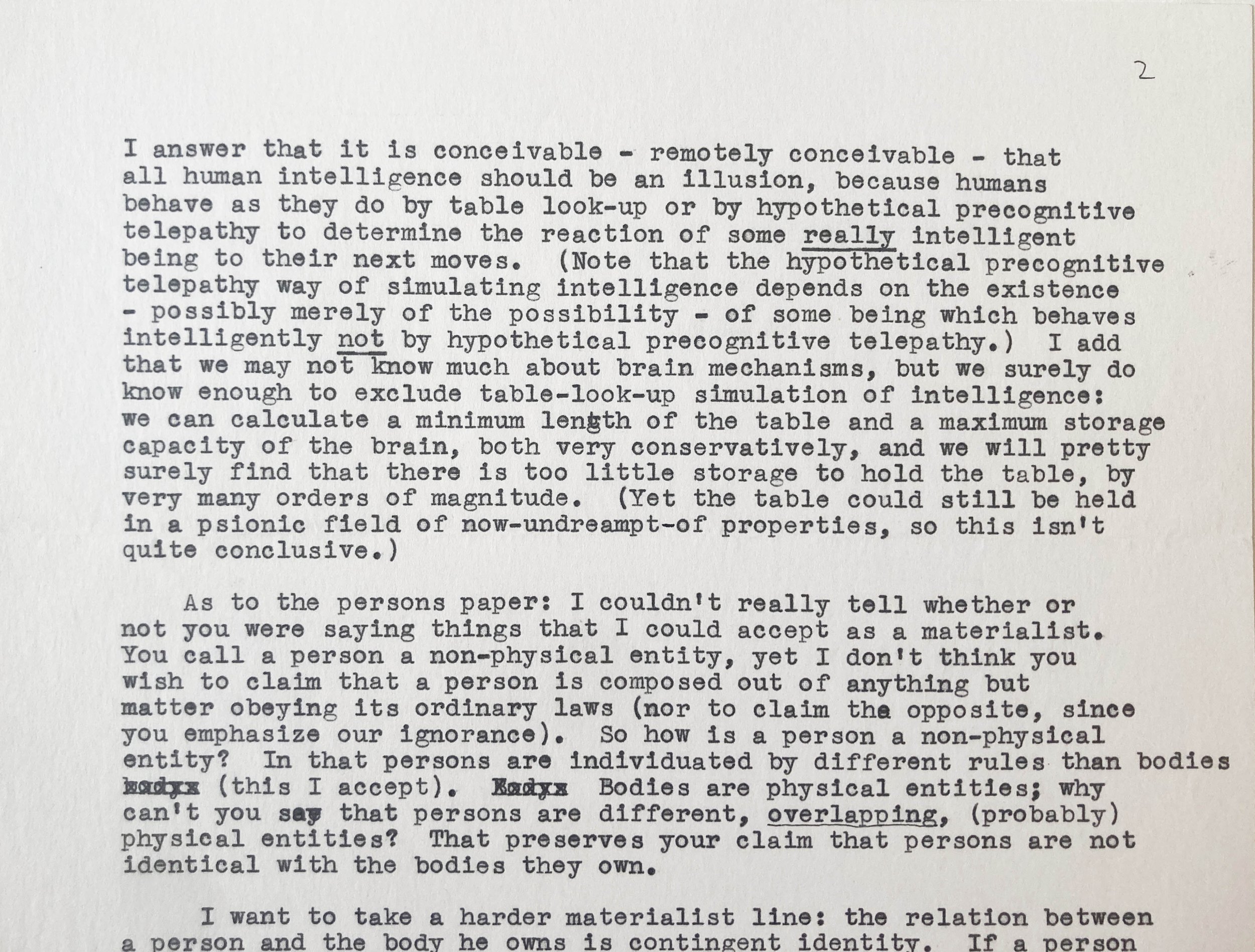THE GREATEST POST-WAR PHILOSOPHER ON AI: AN IMPORTANT LETTER ON THE TURING TEST



THE GREATEST POST-WAR PHILOSOPHER ON AI: AN IMPORTANT LETTER ON THE TURING TEST
[ARTIFICIAL INTELLIGENCE] LEWIS, David
Typed letter signed (TLS) on the Turing Test and Artificial Intelligence, 3 October 1964
AN IMPORTANT LETTER ON THE NATURE OF INTELLIGENCE – HUMAN AND ARTIFICIAL
213 x 275mm; 3 leaves typescript; signed.
A very fine and rich letter from David Lewis to his former undergraduate teacher Jerome Shaffer, in which Lewis gives updates on his recent activities before diving into a discussion of the nature of human experience in relation to the famous 'Turing Test', proposed by Alan Turing in 1950.
David Kellogg Lewis (1941–2001) is regarded as one of the most significant post-war philosophers, in particular for his work on possible worlds, counterfactuals and 'modal realism'. Lewis' position as a staunch materialist lends additional weight to his thoughts on the Turing Test, which he never published – though the present letter reveals much about the development of his thinking on the topic of identity, about which he published a number of papers.
Turing's 'Test' determines whether a computer can be classed as 'intelligent'. In short, if a computer can fool a human then it passes the test and we remain agnostic about whether or not the structure of the computer matches in any way our own neurophysiology. Many philosophers have tackled the Turing Test, which has also become a touchstone of popular discussion about AI. Here the philosopher Lewis offers his definitive statement on the relationship between computing machinery and intelligence.
Here Lewis attempts to clarify the central question of the Turing Test: could a computational mechanism substantially unlike the human brain (he uses the word 'wrong') ever be called 'intelligent'? Lewis cites Hilary Putnam and immediately spins the question on its head by asking whether human intelligence itself is an illusion (i.e. as illusory as the 'wrong' computational model). He admits this is 'concievable - remotely conceivable'.
From here Lewis launches into a complex discussion of personhood, and metaphysical questions of identity and individuation. It remains an open question how far Lewis would follow Putnam in pursuit of Turing. Putnam was well known for believing that the human mind itself was an elaborate 'Turing Machine' with an element of randomness. Underlying all of these issues is Lewis deep-rooted materialism, and his concern with temporality and with embodiment.
The letter rewards careful study: Lewis seems to understand the Turing test primarily as a provocation for thinking about human consciousness. Does this mean that AI must approach accurate neurophysiology in order to lay claim to intelligence? And is 'intelligence' therefore the wrong framework for thinking about the whole issue? In 1964 Lewis could only see mechanical cognition as an illusion - what would he make of Deep Learning?
Near fine condition.

